What is the Temporomandibular Joint?
The temporomandibular joint, better known as the TMJ, connects the jawbone to the skull. It works like a sliding hinge to allow full movement when speaking, eating, or yawning.
TMJ disorders are often temporary, although the cause is often difficult to determine. Genetics, arthritis, jaw injury, bruxism (teeth grinding), or issues with the teeth can cause TMJ disorders. For example, overcrowding or severely crooked teeth can disrupt your bite, which can cause the jaw to slide out of its normal position over time. Thankfully, TMJ treatment in Naperville is available to manage or cure these disorders.
TMJ Symptoms
Symptoms of TMJ disorders can include pain, tenderness, or an ache in the jaw, face, ears, or temporomandibular joint. In addition, you may experience pain or difficulty when chewing. In more severe cases, TMJ disorders can cause lockjaw. This is when the jaw locks, making it difficult to open or close the mouth. In most cases, lockjaw associated with TMJ disorders is temporary and will not affect breathing or swallowing.
Mouth Guards
Mouthguards are a device that can be inserted over your teeth. These are sometimes called night guards because they’re meant to be worn primarily while you sleep. Mouthguards can be especially helpful for people who grind their teeth while sleeping.
Oral Splints
Oral splints are similar to mouth guards, except they’re meant to be worn all the time instead of primarily at night. Oral splints can help with TMJ disorders by placing your mouth in a more favorable position. Over time, this can help correct your bite and ease pain or discomfort in your jaw.
Alternative TMJ Treatments
Alternative treatments include non-surgical options and home treatments that work best when paired with either a mouth guard or an oral splint. For example, over-the-counter pain relievers and anti-inflammatories can help manage pain related to the TMJ. However, if the pain is unbearable or over-the-counter medications aren’t working, we may prescribe something more potent like prescription-strength ibuprofen.
Another prescription option is a muscle reliever or relaxer. Our dentist may prescribe a muscle reliever if they believe muscle spasms are causing or exacerbating your TMJ pain.
Some people find physical therapy works well for their TMJ disorders. Physical therapy will focus on stretching and strengthening the jaw using targeted exercises. Ultrasound, heat, and ice may be used alongside the exercises.
Surgical Options
There are various surgical options available at Wheatland Dental for severe TMJ disorders or those where alternatives have proved unsuccessful. Surgical options are a last resort. Injections and minimally-invasive options are available before more invasive options. You should discuss these TMJ treatment options with our dental professionals at Wheatland Dental.
There are Treatment Options Available for Temporomandibular Joint Disorders
TMJ disorders can cause pain and achiness and disrupt your quality of life. These disorders can also make chewing or talking difficult. Thankfully, Wheatland Dental provides TMJ treatments to manage or fix these disorders. Contact our office today to set up a consultation appointment with our dental team.

